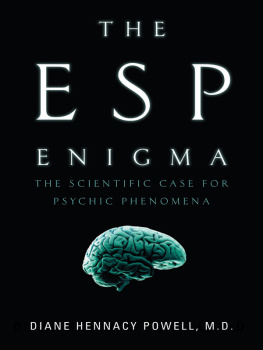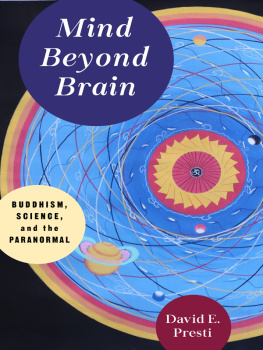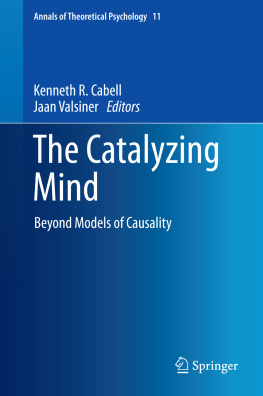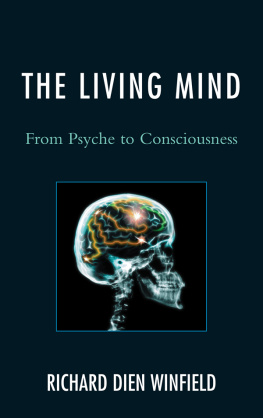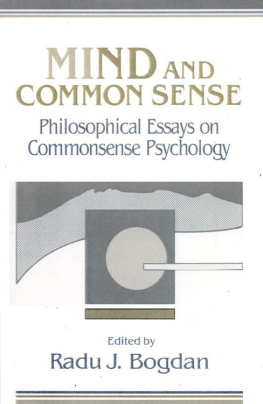About the Authors
Edward F. Kelly is currently Research Professor in the Department of Psychiatric Medicine at the University of Virginia. He received his undergraduate degree in psychology from Yale and a Ph.D. from Harvard with primary interests in psy-cholinguistics and cognitive science. His most recent research, carried out at the University of North Carolina-Chapel Hill as part of a large neuroscience research program, involved non-invasive study of normal and abnormal plasticity in human somatosensory cortex using high-resolution EEG and fMRI techniques. He had previously spent over 10 years working full time in experimental parapsychology, initially at J. B. Rhines Institute for Parapsychology in Durham, NC, and subsequently through the Department of Electrical Engineering at Duke University. He is author of Computer Recognition of English Word Senses (with Philip J. Stone); and Altered States of Consciousness and Psi: An Historical Survey and Research Prospectus (with Ralph G. Locke). His central long-term interests revolve around mind-brain relations and functional neuroimaging studies of unusual states of consciousness and associated cognitive phenomena.
Emily Williams Kelly is currently Research Assistant Professor in the Department of Psychiatric Medicine at the University of Virginia. She received her undergraduate degree in English literature from Duke University, an M.A. in religious studies from the University of Virginia, and a Ph.D. in psychology from the University of Edinburgh. Her dissertation focused on the development of scientific psychology in the late 19th century, with an emphasis on F. W. H. Myers and his contributions to psychology. She has been associated with the Department of Psychiatric Medicine since 1978, working primarily with Dr. Ian Stevenson in research on cases of the reincarnation type and near-death experiences. In recent years her research has focused on other kinds of phenomena suggestive of survival after death, including apparitions, deathbed visions, and mediumship.
Adam Crabtree is currently on the faculty of the Centre for Training in Psychotherapy, Toronto. He received an M.A. in philosophy from the University of Toronto and a Ph.D. in therapeutic counseling from the Open International University for Complementary Medicines. He is particularly interested in the history of hypnotism, psychotherapy, and dissociative disorders. His books include Multiple Man: Explorations in Possession and Multiple Personality; Animal Magnetism, Early Hypnotism, and Psychical Research: An Annotated Bibliography; and From Mesmer to Freud: Magnetic Sleep and the Roots of Psychological Healing .
Alan Gauld, M.A., Ph.D., and D.Litt, is a retired Reader in Psychology, School of Psychology, University of Nottingham. As an undergraduate he read History and Natural Sciences (Psychology) at Emmanuel College, Cambridge. He spent a post-graduate year at Harvard, returned to Emmanuel as a Research Fellow, and then moved to Nottingham, where he principally taught biological psychology and neuropsychology. He has written or co-authored five books: The Founders of Psychical Research; Human Action and its Psychological Investigation (with John Shorter); Poltergeists (with Tony Cornell); Mediumship and Survival; and A History of Hypnotism . He is a past president of the Society for Psychical Research, received from the Parapsychological Association the Award for Outstanding Contributions to Parapsychological Research, and was awarded the Myers Memorial Medal of the Society for Psychical Research.
Bruce Greyson is the Chester F. Carlson Professor of Psychiatry and Director of the Division of Perceptual Studies at the University of Virginia. He was one of the founders of the International Association for Near-Death Studies, and for the past 25 years has edited the Journal of Near-Death Studies . Dr. Greyson majored in psychology at Cornell University, received his medical degree from the SUNY Upstate Medical College, and completed his psychiatric residency at the University of Virginia. He practiced and taught psychiatry at the University of Michigan and the University of Connecticut, where he was Clinical Chief of Psychiatry, before returning to the University of Virginia 11 years ago. Dr. Greysons research for the past three decades has focused on the aftereffects and implications of the near-death experience. He is co-editor (with Charles P. Flynn) of The Near-Death Experience: Problems, Prospects, Perspectives .
Michael Grosso, though nominally retired, is currently teaching at the University of Virginias School of Continuing Education. He received his Ph.D. from Columbia University in philosophy with an M. A. in classical Greek, and has taught philosophy at Marymount College, John F. Kennedy University, City University of New York, and New Jersey City University. His main current interests focus on developing a theory of mind adequate to the available empirical data and developing methods of 21st-century philosophical practice. These interests come together in his ongoing attempt to develop a new philosophical therapy that is based on a radically expanded understanding of human mental capacities. He is currently a director of the American Philosophical Practitioners Association and Review Editor of the Journal of Philosophical Practice . His recent books include The Millennium Myth; Experiencing the Next World Now; and The Misunderstood Savior: Epicurus and Philosophical Practice (forthcoming).
Appendix
Introductory Bibliography of
Psychical Research
This annotated list is intended only to provide an entry into the vast literature of serious psychical research. It is by no means complete or even comprehensive, and it reflects to some degree our personal preferences, although many if not most of our selections would probably also appear on similar lists compiled by other knowledgeable professionals. Many of the entries cited contain extensive bibliographies of their own. For additional references to some of the basic literature of the field, see http://www.pfly-ceum.org/106.html.
Introductory and General Scientific Literature
Broughton, Richard S. (1992). Parapsychology: The Controversial Science . New York: Ballantine. A good general introduction to the problems, findings, and implications of the science of parapsychology.
Edge, Hoyt L., Morris, Robert L., Rush, Joseph H., & Palmer, John (1986). Foundations of Parapsychology: Exploring the Boundaries of Human Capability . London: Routledge & Kegan Paul. An advanced, textbook-style survey of methods and findings in modern parapsychology, emphasizing experimental studies.
Krippner, Stanley (Ed.) (19771997). Advances in Parapsychological Research (8 vols.). An ongoing series reviewing recent research on a wide variety of topics of current interest to parapsychologists, including occasional bibliographic updates of the literature.
Murphy, Michael (1992). The Future of the Body: Explorations into the Further Evolution of Human Nature . New York: Tarcner/Putnam. An extensive survey and classification of phenomena bearing on the question of the evolution of human nature, as suggested in particular by latent, or as yet not fully realized, attributes and capacities for transcendence and transformation. In this context the author describes a variety of effects of mental states on the body, as well as numerous transformative practices. Several appendices and a large bibliography guide the reader to an enormous wealth of literature on the topics surveyed.
Pratt, J. G., Rhine, J. B., Smith, B. M., Stuart, C. E., & Greenwood, J. A. (1940). Extra-Sensory Perception After Sixty Years: A Critical Appraisal of the Research in Extra-Sensory Perception . New York: Henry Holt. One of the classics of experimental parapsychology which, despite its age, is still a valuable overview of the early research at Duke. Includes responses to all meaningful experimental and statistical criticisms advanced up to that date.


